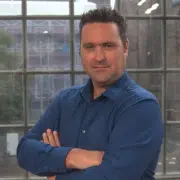Do techgiants pose a threat to national security and European strategic autonomy? How should the Netherlands respond to the current shortage on the gas markets? What sort of company is Gazprom? And why is Russia cracking down on tech companies? Find out in your new HCSS Digest!
Sensitive technologies are growing to be more and more closely associated with European strategic autonomy. But how do techno-nationalists operate, what can the Netherlands do to protect its sizeable R&D infrastructure from their advances, and to what degree should The Hague look to Brussels for guidance and support? In collaboration with Tobias Gehrke (Egmont Institute), HCSS analysts Hugo van Manen, Jack Thompson and Tim Sweijs outline a Policy Agenda for Countering Techno-Nationalism in HCSS’ most recent publication.
“As always, we were only willing to fight… to the last American.” In his final column for Militaire Courant, HCSS Director of Political Affairs Han ten Broeke looks back on the administrative choices of the Afghanistan mission.
The trust between the 3 main NATO countries is gone. This forces us, continental Europeans, to seriously reflect on our own defense, Rob de Wijk writes in his weekly column in Trouw: Are we going to support the US in the Pacific? Or will the transatlantic ties be loosened and will we start working on European defense under French leadership?
Google and Apple have removed an election app from Russian opposition leader Alexei Navalny from their app stores. It is the umpteenth measure the country is taking against tech companies. HCSS expert Helga Salemon explains to NU.nl why Russia is doing this – and why now?
Since 2018, the Netherlands is a net importer of gas. As we become more and more dependent on Russian gas, HCSS energy expert Jilles van den Beukel thought it was time to take a closer look at Gazprom in an article for Energeia. What kind of company is it? And how should the Netherlands respond to Gazprom’s strategy and the current shortage on the gas markets?
The crumbling of American power and the divergent interests of Europe and the US require a review of the role Europe sees for itself, according to data scientist and geopolitical analyst Paul Verhagen. In part 3 of his series on Americanization for EW Podium, he comments: “The future of Europe is up for grabs, but more of the same is not a formula for success.”
Who will become the next German Chancellor? And what does the end of the Merkel-era mean for Germany, Europe and the world? On the BNR/HCSS podcast De Strateeg, this Sunday morning, HCSS Director of Political Affairs Han ten Broeke offers his insights about the upcoming German elections (and did you know you can also listen to De Strateeg on Spotify and Apple Podcasts?).
Even though Norway is supplying more gas, HCSS energy expert Jilles van den Beukel expects that shortages in Europe will last for years, he commented on NOS news: the total Norwegian gas export to Europe is 106 billion cubic meters, out of a total gas consumption in the EU of around 450 billion cubic meters.
The West lost itself in consumerism and made its opponents rich, analyzes Flemish political scientist – and HCSS Subject Matter Expert – Jonathan Holslag in his new book “Van Muur tot Muur”, about world politics since 1989. Together with Arend Jan Boekestijn and Rob de Wijk in their latest BNR podcast, he discussed how the West has been promoting it’s own decline after the optimism of the 90’s.
HCSS founder Rob de Wijk gave the first live interview this week from our state-of-art Studio HCSS, about the AUKUS pact for RTL Z, butunfortunately RTL is suffering from the effects of a ransomware attack and the footage can’t be seen anymore…



